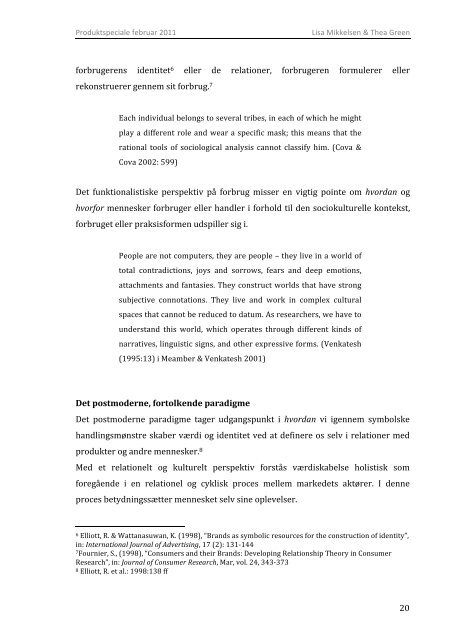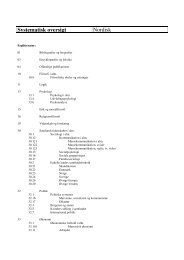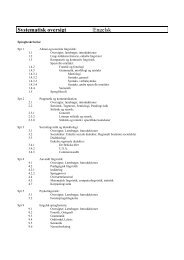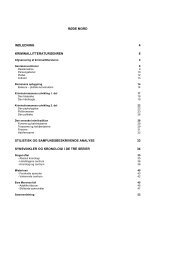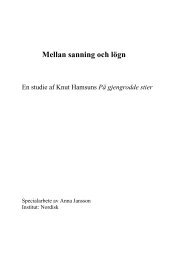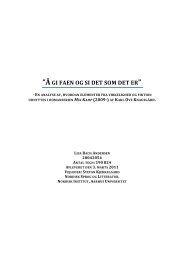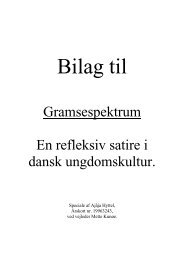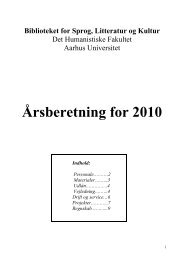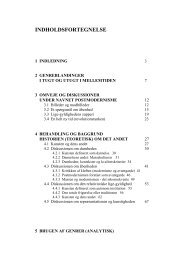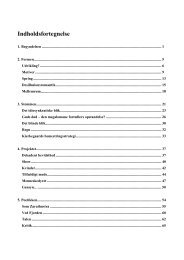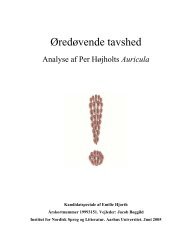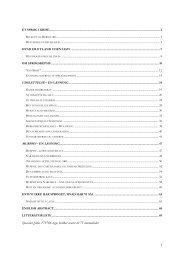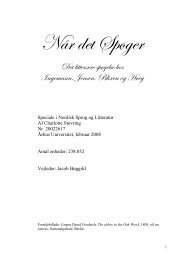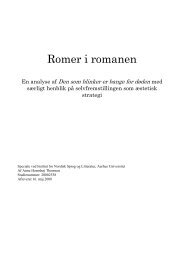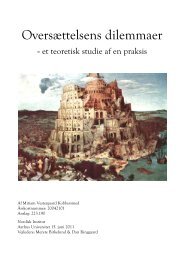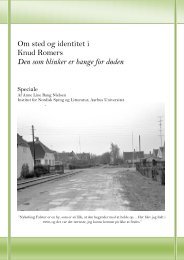speciale færdig opgave - Aarhus Universitet
speciale færdig opgave - Aarhus Universitet
speciale færdig opgave - Aarhus Universitet
You also want an ePaper? Increase the reach of your titles
YUMPU automatically turns print PDFs into web optimized ePapers that Google loves.
Produkt<strong>speciale</strong> februar 2011 Lisa Mikkelsen & Thea Green<br />
forbrugerens identitet 6 eller de relationer, forbrugeren formulerer eller<br />
rekonstruerer gennem sit forbrug. 7<br />
Each individual belongs to several tribes, in each of which he might<br />
play a different role and wear a specific mask; this means that the<br />
rational tools of sociological analysis cannot classify him. (Cova &<br />
Cova 2002: 599)<br />
Det funktionalistiske perspektiv på forbrug misser en vigtig pointe om hvordan og<br />
hvorfor mennesker forbruger eller handler i forhold til den sociokulturelle kontekst,<br />
forbruget eller praksisformen udspiller sig i.<br />
People are not computers, they are people – they live in a world of<br />
total contradictions, joys and sorrows, fears and deep emotions,<br />
attachments and fantasies. They construct worlds that have strong<br />
subjective connotations. They live and work in complex cultural<br />
spaces that cannot be reduced to datum. As researchers, we have to<br />
understand this world, which operates through different kinds of<br />
narratives, linguistic signs, and other expressive forms. (Venkatesh<br />
(1995:13) i Meamber & Venkatesh 2001)<br />
Det postmoderne, fortolkende paradigme<br />
Det postmoderne paradigme tager udgangspunkt i hvordan vi igennem symbolske<br />
handlingsmønstre skaber værdi og identitet ved at definere os selv i relationer med<br />
produkter og andre mennesker. 8<br />
Med et relationelt og kulturelt perspektiv forstås værdiskabelse holistisk som<br />
foregående i en relationel og cyklisk proces mellem markedets aktører. I denne<br />
proces betydningssætter mennesket selv sine oplevelser.<br />
6 Elliott, R. & Wattanasuwan, K. (1998), “Brands as symbolic resources for the construction of identity”,<br />
in: International Journal of Advertising, 17 (2): 131-‐144<br />
7Fournier, S., (1998), “Consumers and their Brands: Developing Relationship Theory in Consumer<br />
Research”, in: Journal of Consumer Research, Mar, vol. 24, 343-‐373<br />
8 Elliott, R. et al.: 1998:138 ff<br />
20


